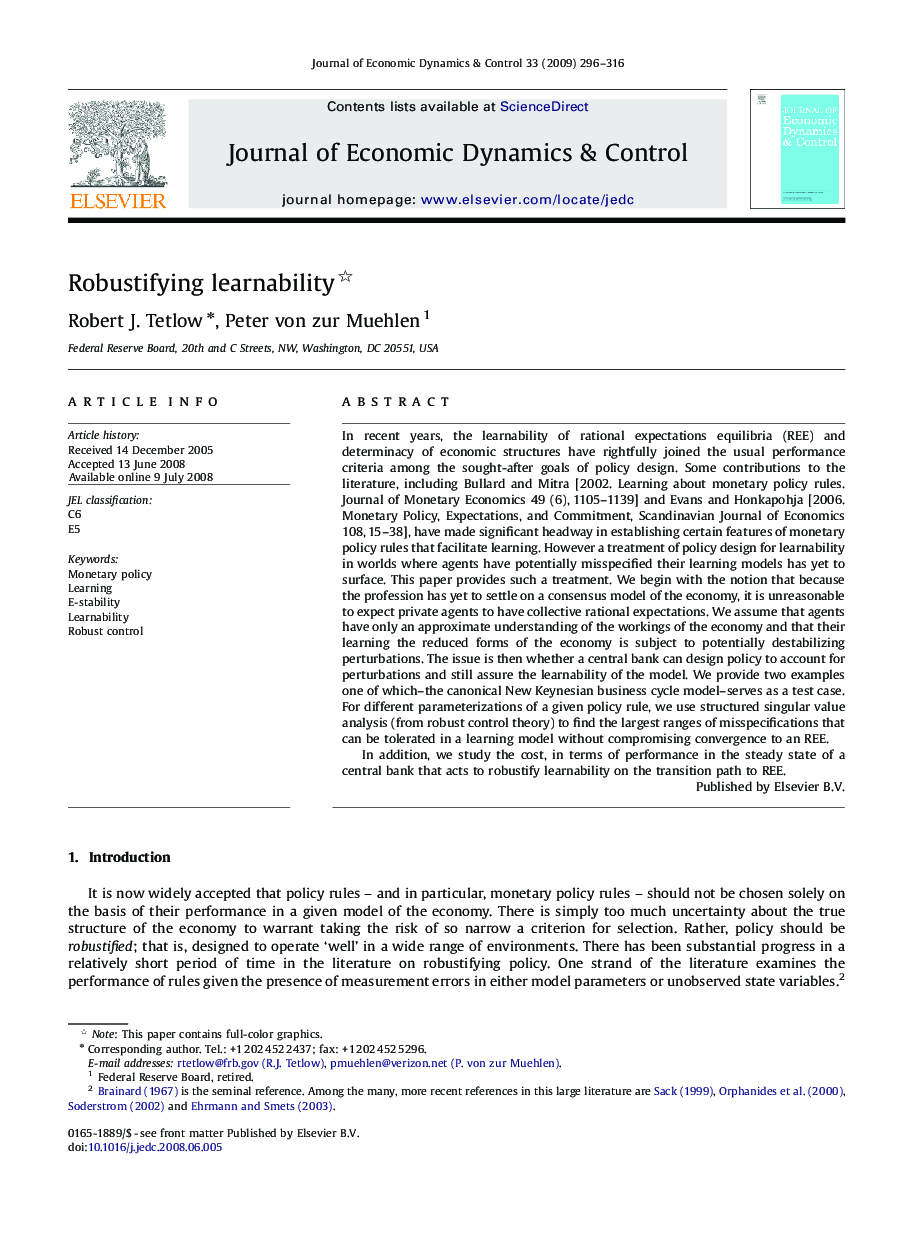| Article ID | Journal | Published Year | Pages | File Type |
|---|---|---|---|---|
| 5099105 | Journal of Economic Dynamics and Control | 2009 | 21 Pages |
In recent years, the learnability of rational expectations equilibria (REE) and determinacy of economic structures have rightfully joined the usual performance criteria among the sought-after goals of policy design. Some contributions to the literature, including Bullard and Mitra [2002. Learning about monetary policy rules. Journal of Monetary Economics 49 (6), 1105-1139] and Evans and Honkapohja [2006. Monetary Policy, Expectations, and Commitment, Scandinavian Journal of Economics 108, 15-38], have made significant headway in establishing certain features of monetary policy rules that facilitate learning. However a treatment of policy design for learnability in worlds where agents have potentially misspecified their learning models has yet to surface. This paper provides such a treatment. We begin with the notion that because the profession has yet to settle on a consensus model of the economy, it is unreasonable to expect private agents to have collective rational expectations. We assume that agents have only an approximate understanding of the workings of the economy and that their learning the reduced forms of the economy is subject to potentially destabilizing perturbations. The issue is then whether a central bank can design policy to account for perturbations and still assure the learnability of the model. We provide two examples one of which-the canonical New Keynesian business cycle model-serves as a test case. For different parameterizations of a given policy rule, we use structured singular value analysis (from robust control theory) to find the largest ranges of misspecifications that can be tolerated in a learning model without compromising convergence to an REE.In addition, we study the cost, in terms of performance in the steady state of a central bank that acts to robustify learnability on the transition path to REE.
